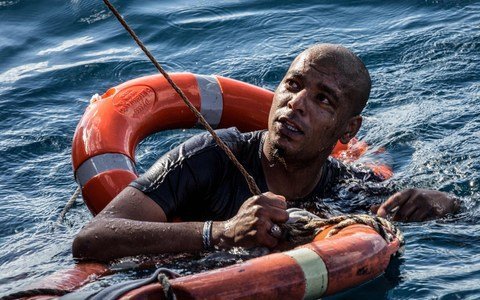
When a traffic accident happens and people are wounded, the emergency services that come on site do not start by taking out the measuring tape to draw the sketch and determine culpability. They start by doing triage, putting the wounded in ambulances, the most seriously hurt first and making sure the area is not of any further danger to anyone.
When that is done and people are safe, determining legal responsibilities and taking appropriate action can start.
That basic logic appears to have escaped Malta, Italy and the rest of Europe while 49 migrants saved from drowning continue to be trapped literally between the desert and the sea denied the warmth and safety of land.
Joseph Muscat’s talk yesterday about his concerns with legal precedent is putting things in the wrong order. He’s not the worst. Italy’s behaviour is truly despicable and it is not unreasonable for Malta’s government to expect Matteo Salvini’s government to exploit our mercy dumping shared responsibilities on us alone.
But can you imagine a paramedic refusing to treat a casualty patient who suffered in a traffic accident because he believes the other paramedic in the ambulance is not pulling his weight at work? Or even refusing to treat the patient because he believes, at face value, the accident to have been caused somehow by the patient’s negligence before they got hurt?
Of course you don’t. We know that where humans (and animals) are concerned you save lives first. You discuss working conditions and causes of accidents later.
I will not pretend not to understand the arguments of Malta’s government. European countries have been talking about burden sharing but have been unable to live up to it. Poland and Hungary have drawn an inhumane line around their borders and no one seems able to do anything about it. Xenophobia, prejudice and blatant racism have become mainstream politics.
No one wants to hear the stories of the people at sea: what madness drives them to leave their homes where nothing grows anymore because the climate has made their fields a desert. No one wants to know about how they were brought to Libya and Algeria and Egypt to work on construction sites and fired just before their pay was due. About how colleagues and friends of theirs were rounded up by authorities and pushed out of the southern borders of these countries to die in the desert.
About how Tunisia refused to consider their right to asylum that any other country respecting basic standards would have had to and forced them back to Libya where they were sold into slavery or imprisoned and tortured and held for ransom.
No one wants to hear what madness makes a man jump off a boat in December a 100 kilometres away from any land because they would rather die than wait a day longer on a boat on which they were stuck for three weeks sleeping in the vomit of others. And that was at the end of months and years of journeying where their basic belief in humanity and any hopes they may have had of a decent existence has long been crushed.
No one wants to think of these people as people.
And then it’s easy not to be the “Christmas saint” Joseph Muscat would feel irresponsible being.
The prime minister is worried we’d become a landing point for lost souls in the Mediterranean. It would be a tough burden, one Italy could no longer handle on its own, let alone we. It would be a compromise on our well-being, an expense that would dilute these great economic times.
Joseph Muscat says he’s also concerned about our security and the security of Europe, which is a bit rich given that if these 49 came with a million euro each he’d have no such qualms and they’d be travelling with a new Malta passport.
The fact is, yes, the decision to let those 49 souls into our harbours is not an easy one and if Italy is prepared to be as callous as it threatens to be, the consequences could be greater than we can imagine right now. It is superficial not to be worried about the risks.
Knowing all that, no one should be left to die out in the cold because we’re worried about opening our doors.
The archbishop may appeal to Christian conscience. I cannot do it because I’m not Christian.
But for the love of all that is human. Let them in and then let’s start worrying about where they might go and why it’s unfair we are expected to do this when everyone else seems so keen to look away.
They’re just outside our water. We’re the nearest land. We’re crowded here but we can squeeze another 49 people. Don’t let them drown. Don’t send them back to the desert to die of thirst or worse.
For all that is human that is left in us, let them in.